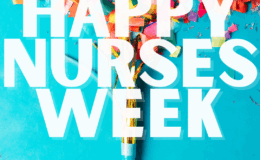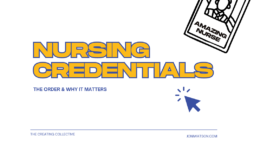I held her head forward as she vomited blood time and time again. All I managed to do otherwise was look at her frightened husband and say, “Mr. K., hold her hand.” He did.
I started my night shift as charge nurse with five patients. I tried to take everyone with blood or chemo because our staffing mix dictated that responsibility to me anyway for the night. Mrs. K. was one of those patients. She was severely anemic – common for those enduring chemotherapy – and she was admitted for a blood transfusion. She had already received two units of PRBCs upon my arrival. I was scheduled to give her two more before change of shift. Doable. Her attentive husband was at her semi-private bedside, the ever-private curtain drawn.
It was rare to see a physician round at midnight, but a new doc to the main oncology group was doing just that. He stopped in to talk to Mrs. K. and her husband, so I joined them in case I needed to answer patient questions, reiterate the physician’s points, or advocate for the patient if needed. It was actually a very serious conversation. The physician was discussing DNR with Mrs. K. and her husband. He talked to them for at least 45 minutes, taking great care to answer every single one of their questions about DNR with such honesty and poise. I remember because I even had to step out briefly to talk with another nurse about a patient. That physician became one of my favorite docs that night. And at the end of the conversation, Mrs. K. was absolutely sure that she did not want any life-sustaining measures should her heart or lungs stop functioning. The physician placed orders on her chart. I carried them out, starting with a wristband and chart identifiers indicating her DNR status. I then went about caring for the rest of my patients. There were no follow-up questions about DNR from Mrs. K. or her husband.
Two hours and two units of PRBCs later, the sun was rising. The day shift was filtering in to the break room – waiting for report. And then the scenes that lasted only minutes but felt like years burned into my memory…Shortly after I start report, my night shift colleague burst in saying she needs help…with a declining patient…my patient – Mrs. K.
I run past the curtain. Mrs. K. is agitated and nearing unconsciousness. She is having difficulty breathing, so my colleague and I sit her up and grab an oxygen mask. I remember her recent DNR orders as I instinctively glance at the code alarm. As soon as I place the mask, she vomits – bright red blood. Oh no. Mask off. Vomit again. More blood. No, no, no. Grab a towel, which, of course, is white. Vomit again. White towel turns red. Vomit again. And again. Colleague fiddles with wall suction. The hematemesis occurs too fast. Day shift nurses flood the unit to help our night shift team with the situation and the other patients on the unit. I look up. Mr. K. is stunned, grasping on to the bed side rail.
Then it happened – Mr. K. and I locked eyes. No other communication was needed. He knew. I knew he knew. My colleague continued to capture and clean the blood from Mrs. K.’s face. “Mr. K, hold her hand,” I instructed. He did, holding her small hand inside his two large hands. Seconds seemed like hours – to me, at least. Mrs. K.’s hematemesis continued for a few moments and then she drew one last breath.
It was the most violent death I have witnessed as a nurse. And I thought about it, her, him today – Valentine’s Day. I don’t know what triggered the thought – the radio DJ’s talking about hand holding? It must have been because it is the image of him holding her hand that keeps penetrating my mind. Forgive my lack of confetti hearts and red glitter, but these are the thoughts of a nurse. Life is precious.
Remember: Hold her hand. Hold his hand.





